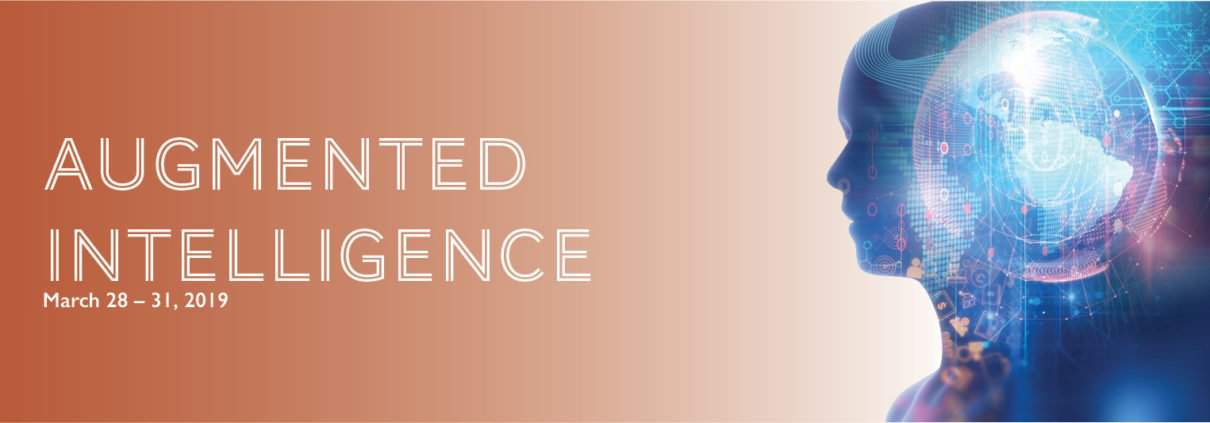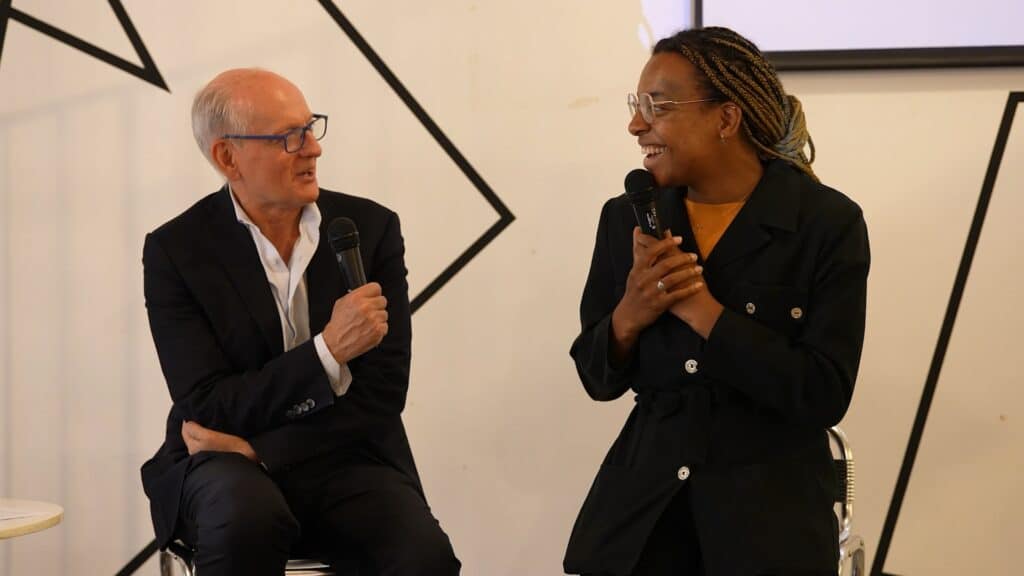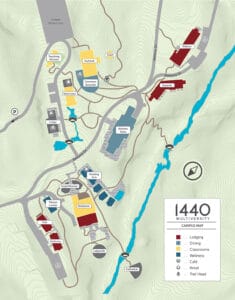AIS Program

Contents
 Augmented Intelligence Summit
Augmented Intelligence Summit
Program
We are so thrilled that you have chosen to spend next weekend with us at AIS, asking big questions about the future of AI and imagining and planning how to steer us toward a future that supports human flourishing.
This is a brand new kind of AI summit, convening some of the top minds in the field with a diverse range of expert perspectives to collaborate on the imagining and planning process for deployment, alignment and AI destinations. Our biggest question: how can we create our future with intelligence AND wisdom?
Agenda
All sessions are in Outlook 101 | All meals are at the Kitchen Table | Check-in is at the Lodge.
Agenda is subject to change.
Thursday, March 28th
2:00pm: Check-in opens
5:30-7pm: Dinner
7:30-7:55pm: Keynote: Modeling, Simulation & Changing the Rules of the Game | Gaia Dempsey, 7th Future
7:55-8:00pm: Welcome Remarks | Anthony Aguirre, Future of Life Institute
8:00-9:00pm: World Building Breakout: “A Day in Life” Exercise
Description: Small groups of 5 to 7 participants imagine a day in the life of a character they co-create that lives on Earth 2045. The goal of the exercise is to encourage participants to place themselves within the experience of Earth 2045, get familiar with the practice of creating a fictional future, and get to know each other (break the ice). A volunteer from each group will take notes on butcher paper.
Key Themes: Experiential Introduction to Earth 2045, Creativity + Specificity
Friday, March 29th
7:00-8:45am: Breakfast at the Kitchen Table
9:00-9:05am: Morning Remarks: Outline Sessions for the Day | Anthony Aguirre
9:05-9:10am: Introduction from Session Chair | Jingying Yang, Partnership on AI
9:10-9:40am: Keynote: AI Futures – Where Are We Headed and How Do We Steer? | Stuart Russell, Center for Human Compatible AI, UC Berkeley
Description: Stuart will frame the problem we are working to solve at AIS, namely that advanced AI technology represents a vast amplifying capacity for human beings that could veer into dangerous uncharted territory with vast societal implications.
9:40-10:10am: Genomics and the Evolution of the Mind | David Haussler, Center for Biomolecular Science and Engineering and the California Institute for Quantitative Biosciences (QB3), UC Santa Cruz
Description: We are currently only what evolution made us. But technology is changing this. Our interactions with the Internet, with AI and with each other on a global scale are changing how our minds work. To understand where we might go, we need to first understand where we came from. I will briefly overview 3.8 billion years of genome evolution and mention some changes in our genomes in the last 3 million years that made our brains different from those of our ancestors. Next we need to understand where we are now. I’ll briefly discuss how we are attempting to address our current state of ignorance about how our minds work by growing human and chimpanzee cerebral organoids in a dish. Finally I will close with some speculations about the future of brain-machine interactions.
10:10-10:40am: Coffee Break
10:40-11:00am: Introduction to World Building as a “Mechanical Turk” modeling process | Anthony Aguirre
Key Theme: Detailed Introduction to Earth 2045, Purpose of World Building
11:00-12:30pm: Small Group Breakout: System World Building Exercise (If This, Then What, So What, How did we get there) | Ariel Conn
Description: Small groups of 5 to 7 participants collaborate on describing the systems that would need to be in place on Earth 2045 to move toward their aspirational vision. Each group (approx. 15 total) focuses on a particular lens, such as neuroethics, democratic processes, economic justice, education, healthcare, manufacturing, etc.
Key Theme: Earth 2045 system descriptions across culture, nature and infrastructure
12:30-1:45pm: Lunch at the Kitchen Table
2:00-2:30pm: What’s the Future of Criminal Justice? | Peter Eckersley, Partnership on AI
2:30-3:30pm: Synthesis Session | Facilitator TBD
Description: Facilitation of the large group, sharing and combining the insights they developed in the system-building exercise, identifying areas of confluence and conflict. The evolving description of Earth 2045 is enriched, including a unified timeline of events.
Key Theme: Synthesis
3:30-4:00pm: Afternoon Coffee Break
4:00-5:30pm: Red Teaming/Blue Teaming Earth 2045 | Allison Duettmann, Lou Viquerat, Foresight Institute
Description: After a brief intro to XHope, Red Teams and Blue Teams are created to attack and defend Earth 2045.
Key Theme: Stress testing
5:30-7:00pm: Dinner at the Kitchen Table
Saturday, March 30th
7:00-8:45am: Breakfast at the Kitchen Table
9:00-9:05am: Saturday Opening Remarks | Gaia Dempsey
9:05-9:10am: Introduction from Session Chair | Kyle Robertson, The Humanities Institute, UCSC
9:10-9:40am: Keynote: Complex Adaptive System Modeling: Origins and Applications | David Krakauer, Santa Fe Institute
Description: David will orient us toward solution paths for the problem Stuart outlined on Friday, namely the power of systems thinking for improving our understanding of the world, as well as our decision making, long-term thinking, and coordination capacity.
9:40-10:10am: Keynote: The Value of Non-Zero Sum Dynamics | Michael Page, Center for Security and Emerging Technology
10:10-10:40am: Coffee Break
10:40-11:00am: Keynote: System 1 and System 2 Thinking Cycles | Shahar Avin, Center for the Study of Existential Risk, Cambridge
11:00am-12:30pm Scenario Simulation | Facilitated by Shahar Avin, CSER
Description: Groups of people on Earth 2045 pursue goals and report back if they are successful. (Similar to a D&D quest).
Key Theme: Emergent outcomes, experiential understanding
12:30-1:45pm: Lunch at the Kitchen Table
2:00-2:30pm Keynote: Redefining Social Welfare: Bridging Preferences Across an Impossible Chasm | Marc Fleurbaey, University Center for Human Values, Princeton
Description: Marc will provide an overview of contemporary economic theories of justice and introduce us to the most important and promising ideas for social progress identified by the International Panel on Social Progress on structural and systemic issues for the long-term future. Finally, Marc will explore new potential solutions that become viable in economies powered by advanced AI.
2:30-3:30pm: Ideation Session: What is needed to move toward your aspirational vision of Earth 2045?
Description: Hackathon-style 1-minute pitches, group formation and collaboration. Groups focus on a specific system or opportunity they have uncovered during their world building and role-playing exercises.
Key Theme: Solution generation
3:30-4:00pm: Afternoon Coffee Break
4:00-5:30pm: Small Group Working Session
Key Theme: Solution generation
5:30-7:00pm: Dinner at the Kitchen Table
Sunday, March 31st
7:00-8:45am: Breakfast at the Kitchen Table
9:00-9:05: Sunday Opening Remarks | Gaia Dempsey
9:05-9:10am: Introduction from Session Chair | Chair TBD
9:10-9:40am: Keynote: Tools and Human Co-Evolution | Max Tegmark, Professor of Physics, MIT and FLI Co-Founder
9:40-10:10am Global Ethics in AI Development | Marie-Therese Png, Oxford
10:10-11:30am: Hackathon Groups Present
Description: Groups share their ideas that they’ve worked on since Saturday afternoon.
11:30-12:00pm: Next Steps for Projects and Closing Remarks
12:00-1:30pm: Lunch at the Kitchen Table
Departure
Materials
Please familiarize yourself with these before you arrive.
Introduction to Earth 2045
Meet Earth 2045.
The model world of 2045 being explored at AIS, denoted “Earth 2045” for brevity, is defined by a number of assumptions. These are not predictions, nor necessarily goals, but rather just defining characteristics of the plausible and aspirational but fictional world we are fleshing out and investigating at the Summit.
We have 5 small group exercise throughout the summit that relate to Earth 2045. Please familiarize yourself with it so that you can participate fully.
Community Guidelines
Our community guidelines were created by our partner, Partnership in AI. Please read them before the event.
This summit is operating under the Chatham House Rule. When a meeting, or part thereof, is held under the Chatham House Rule, participants are free to use the information received, but neither the identity nor the affiliation of the speaker(s), nor that of any other participant, may be revealed.
Location
1440 Multiversity | 800 Bethany Drive, Scotts Valley, CA 95066
Reservations:
+1-888-727-1440
General Inquiries:
+1-844-544-1440
Transportation Suggestions
About the Future of Life Institute
The Future of Life Institute (FLI) is a global think tank with a team of 20+ full-time staff operating across the US and Europe. FLI has been working to steer the development of transformative technologies towards benefitting life and away from extreme large-scale risks since its founding in 2014. Find out more about our mission or explore our work.
Related content
Other posts about Events

Paris AI Safety Breakfast #3: Yoshua Bengio

Paris AI Safety Breakfast #1: Stuart Russell

Augmented Intelligence Summit Speakers

Augmented Intelligence Summit
Some of our events

Augmented Intelligence Summit


